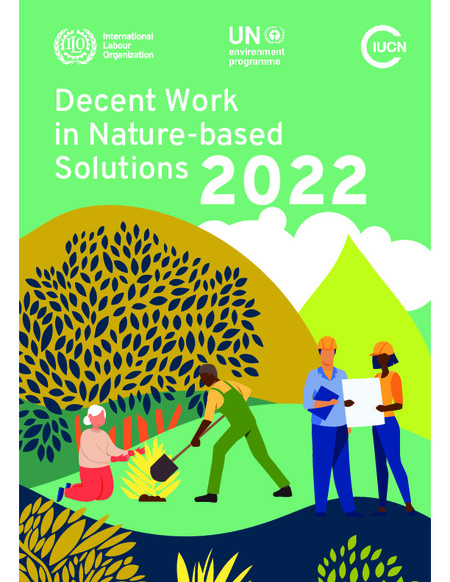| dc.contributor | Ecosystems Division | en_US |
| dc.contributor.author | International Labour Organization | en_US |
| dc.contributor.author | United Nations Environment Programme | en_US |
| dc.contributor.author | International Union for Conservation of Nature | en_US |
| dc.contributor.other | Reid, Hannah | |
| dc.contributor.other | Pimentel, Gabriela Balvedi | |
| dc.contributor.other | Castillo, Monica | |
| dc.contributor.other | van der Ree, Kees | |
| dc.contributor.other | Lieuw-Kie-Song, Maikel | |
| dc.contributor.other | Raes, Leander | |
| dc.contributor.other | Suta, Cornelia-Madalina | |
| dc.contributor.other | Obst, Carl | |
| dc.contributor.other | Dicks, Jennifer | |
| dc.contributor.other | Alexandri, Eva | |
| dc.contributor.other | Lechtenfeld, Robin | |
| dc.contributor.other | Lambert, Stephen | |
| dc.contributor.other | Smith, Alistair | |
| dc.contributor.other | Arsénio, Francisco | |
| dc.contributor.other | Dickson, Barney | |
| dc.contributor.other | Siikamäki, Juha | |
| dc.date.accessioned | 2022-12-07T12:08:44Z | |
| dc.date.available | 2022-12-07T12:08:44Z | |
| dc.date.issued | 2022-12 | |
| dc.identifier.uri | https://wedocs.unep.org/20.500.11822/41401 | |
| dc.description | NbS are increasingly seen as a way to meet the objectives of several global agreements and can be central to a just transition – if the right mix of just transition policies are implemented. But there is currently no guarantee that NbS will generate decent work.
Co-developed by ILO, the United Nations Environment Programme (UNEP) and the International Union for Conservation of Nature (IUCN), this report is the first in a joint global biennial report series that aims to fill knowledge and advocacy gaps on how transitions to a green economy will affect the world of work, and of the role that NbS can and do play in creating employment, especially for the poorest and most vulnerable people. | en_US |
| dc.format | pdf | en_US |
| dc.language | English | en_US |
| dc.language | French | |
| dc.language | Spanish | |
| dc.rights | Public | en_US |
| dc.subject | nature conservation | en_US |
| dc.subject | employment | en_US |
| dc.subject | restoration | en_US |
| dc.subject | nature-based solution | en_US |
| dc.subject | green economy | en_US |
| dc.subject | social indicator | en_US |
| dc.title | Decent Work in Nature-based Solutions 2022 | en_US |
| dc.title.alternative | Le travail décent dans les solutions fondées sur la nature 2022 | |
| dc.title.alternative | Trabajo decente en soluciones basadas en la naturaleza 2022 | |
| dc.type | Publications | en_US |
| dc.type | Technical Reports | en_US |
| dc.relation.TableOfContents | Chapter 1. Introduction | en_US |
| dc.relation.TableOfContents | Chapter 2. Just Transition policies and pathways for promoting decent work outcomes 90 through Nature-based Solutions | en_US |
| dc.relation.TableOfContents | Chapter 3. An overview of current work in NbS | en_US |
| dc.relation.TableOfContents | Chapter 4. Conceptual framework for linking NbS with work and decent work outcomes | en_US |
| dc.relation.TableOfContents | Chapter 5. Measurement concepts and definitions concerning decent work and employment in NbS | en_US |
| dc.relation.TableOfContents | Chapter 6. Estimating current and future employment in NbS | en_US |
| dc.relation.TableOfContents | Chapter 7. Conclusions and recommendations | en_US |
| dc.relation.TableOfContents | Annex 1. Report of key findings: Stakeholder survey on Decent work in Nature-based Solutions | en_US |
| dc.relation.TableOfContents | Annex 2. List of key informants | en_US |
| dc.relation.TableOfContents | Annex 3. International labour standards and resolutions that may be relevant to a just transition framework | en_US |
| dc.relation.TableOfContents | Annex 4. Methodology | en_US |
| dc.relation.TableOfContents | Annex 5. Regional classification of countries included in the modelling results | en_US |
| dc.relation.TableOfContents | Glossary | en_US |




